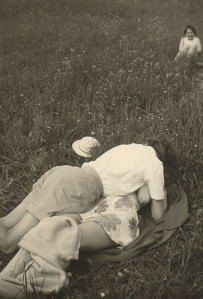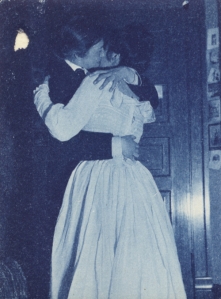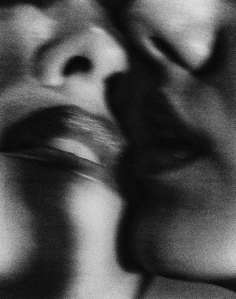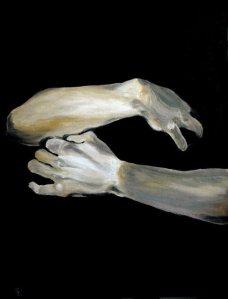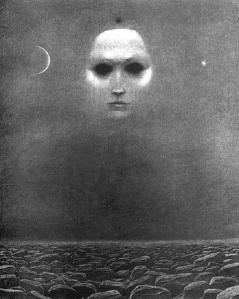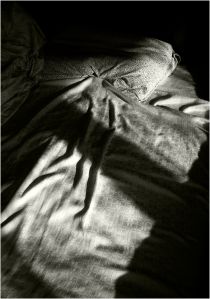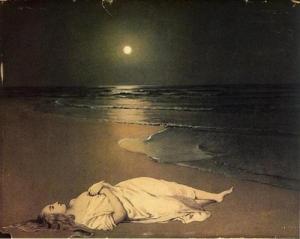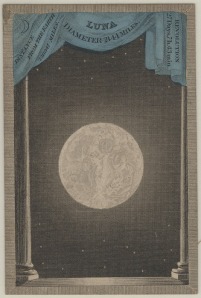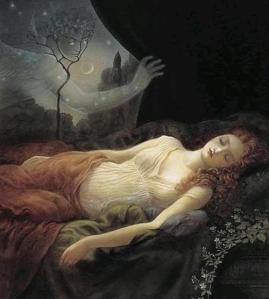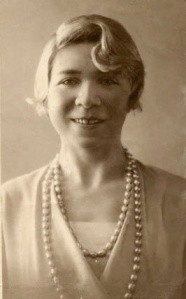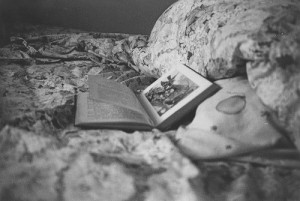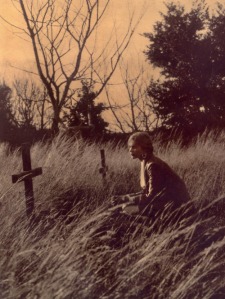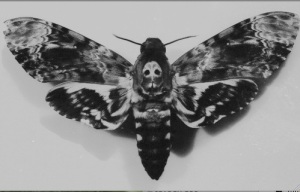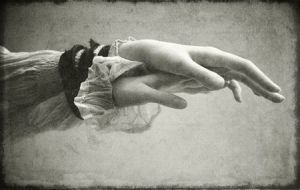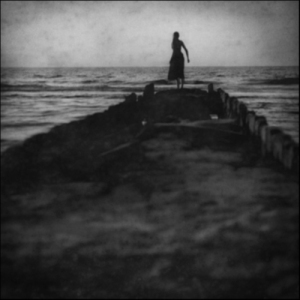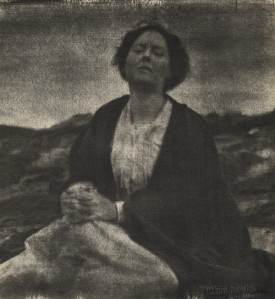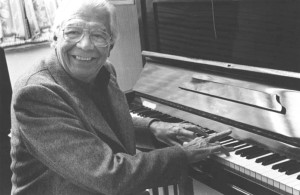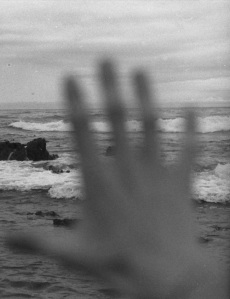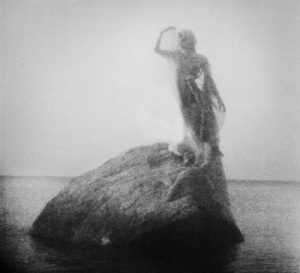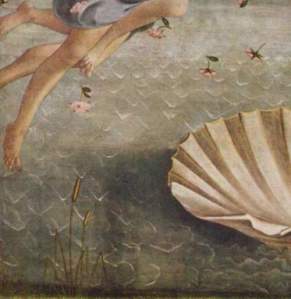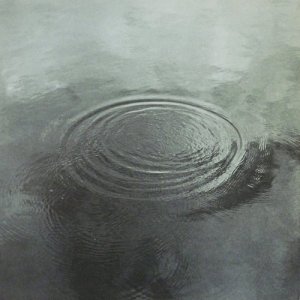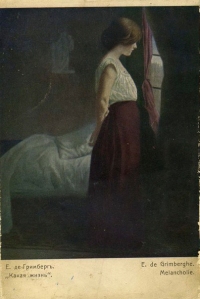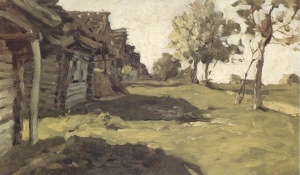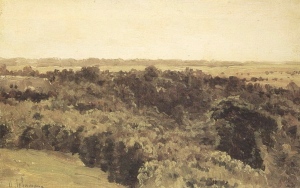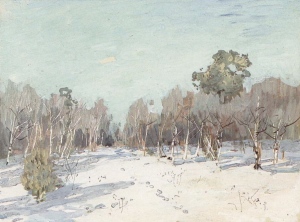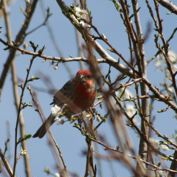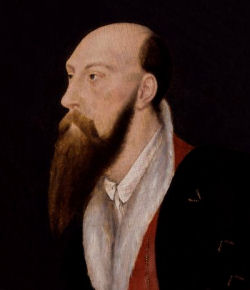
Sir Thomas Wyatt (1503 – 11 October 1542)
A couple of mornings ago, I heard an omen from a solitary jay who alighted on the plum tree outside my front door and gave five sharp bugle blasts of “mean, mean, mean, mean mean.” I remembered her when I sat down to write this post, and heard the tut-tutting of my good angel who stood behind my shoulder and corroborated the jay’s message with a low “wicked,wicked.” I felt constrained to stop for a short space to examine my soul, and my motivations for the task I had been setting for myself, but finding nothing there to fit the description of either “mean” or “wicked”, I concluded that the words had not been meant to deter me, but referred to people now long dead and buried, about whom I had been thinking.
Ever since I read Sir Thomas Wyatt’s poem “The Lover Showeth How He Is Forsaken of Such as He Sometime Enjoyed” many years ago, something about it bothered me. It felt like a badly put-together puzzle, the pieces of which did not fit, and whose picture did not make sense. I felt compelled to try and work out why I had found its meaning as well as its construction so aggravating.
I have a few steadfast beliefs about poets and poetry, one of which is that genuine poets are closet moralists, whose morals are not to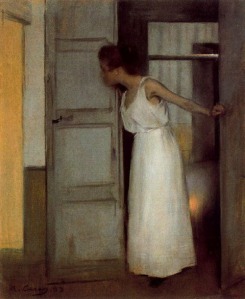 be confused with the cheap variety of conventional social and religious prescriptions but rather are the expression of a deep sense of personal integrity and a devotion to honesty in all things. The other is that to be a poet is not simply to have the knack of versifying, nor is it an avocation, or in fact a vocation. It is a matter of whole-hearted dedication to a calling.
be confused with the cheap variety of conventional social and religious prescriptions but rather are the expression of a deep sense of personal integrity and a devotion to honesty in all things. The other is that to be a poet is not simply to have the knack of versifying, nor is it an avocation, or in fact a vocation. It is a matter of whole-hearted dedication to a calling.
Sir Thomas Wyatt was Ambassador to Spain, Special Envoy to France, Marshall of Calais, Sheriff of Kent, Member of Parliament, and Vice-admiral Elect of the Fleet. His patron had been Thomas Cromwell, the cunning and unscrupulous advisor who had replaced Cardinal Wolsey as counsel to Henry VIII. Wyatt was a professional diplomat who wrote poetry – or maybe I should call it verse – for the purpose of charming and seducing women. Though he had a reputation for being handsome, the portrait of him by Hans Holbein the younger, reveals a balding, pasty-complected man with close-set puffy eyes and a limp beard, who appears much older than his years (Wyatt died at the age of 39).
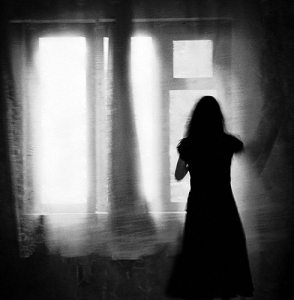
Here is the Wyatt sonnet I have been looking over in the last two days.
The Lover Showeth How He Is Forsaken of Such as He Sometime Enjoyed
They flee from me that sometime did me seek 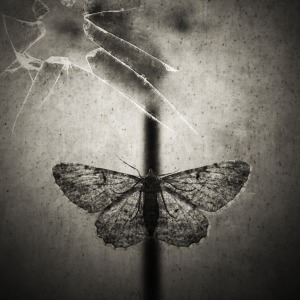
With naked foot stalking in my chamber.
I have seen them gentle tame and meek
That now are wild and do not remember
That sometime they put themselves in danger
To take bread at my hand; and now they range
Busily seeking with a continual change.
Thanked be fortune, it hath been otherwise
Twenty times better; but once in special,
In thin array after a pleasant guise,
When her loose gown from her shoulders did fall,
And she me caught in her arms long and small;
And therewithal sweetly did me kiss,
And softly said, Dear heart, how like you this?
It was no dream, I lay broad waking.
But all is turned through my gentleness
Into a strange fashion of forsaking;
And I have leave to go of her goodness
And she also to use newfangledness.
But since that I so kindely am served,
I fain would know what she hath deserved.
This sonnet leaves its most lingering impression in the potent erotic image which runs like a broken thread throughout its warp, that of a slender, beautiful, bare-footed young girl, diaphanously and negligently clad, who enters the bedchamber of a paramour to slip off her silk chemise and offer herself up to who knows what, with a kiss and a lubricious invitation.
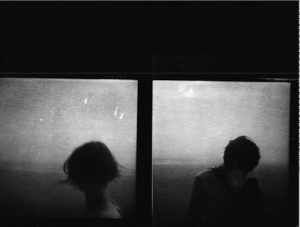
Rendered in prose it reads something like this:
They run away from me now, who formerly pursued me, even coming to my bedroom half naked, those women who used to be so 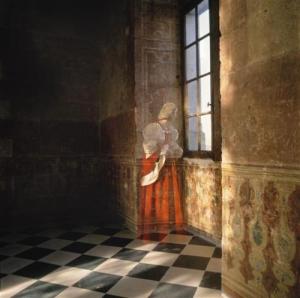 submissive and tractable. Now they have reverted to wildness, and forget the risks they took in order to ‘take bread’ from me. Now they busily look elsewhere. Thank goodness twenty times over it wasn’t always like this. One woman in particular came scantily clad in a charming negligee and slipped it off her shoulder, addressed me with an endearment, and putting her arms around me, kissed me and asked me how I liked it. Honestly, I wasn’t just dreaming, but wide awake when this happened! But now, because of my kind forbearance everything is changed into a kind of rejection, when I have been given permission to leave, and she is free to be as capricious as she would wish. Since now I am the victim of such mistreatment, I would like to know if she has received her just deserts.
submissive and tractable. Now they have reverted to wildness, and forget the risks they took in order to ‘take bread’ from me. Now they busily look elsewhere. Thank goodness twenty times over it wasn’t always like this. One woman in particular came scantily clad in a charming negligee and slipped it off her shoulder, addressed me with an endearment, and putting her arms around me, kissed me and asked me how I liked it. Honestly, I wasn’t just dreaming, but wide awake when this happened! But now, because of my kind forbearance everything is changed into a kind of rejection, when I have been given permission to leave, and she is free to be as capricious as she would wish. Since now I am the victim of such mistreatment, I would like to know if she has received her just deserts.
Seldom does a poem disclose its flaws so early, so thoroughly and so completely as does Sir Thomas Wyatt’s poem, better known by its first line “They flee from me that sometime did me seek”, and seldom has such extravagant ineptitude and knavery as has been expressed in it been put to such a subtle purpose. The first hint comes of course with the very first word, “they”, followed by a shamefully unworthy expression of rancour and self-pity. From there things could only get worse.
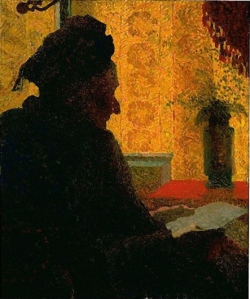 As I see it, a dejected Tom Wyatt is bemoaning his fate at having to forego the ‘favours’ of the women he had formerly been accustomed to enjoy. Since the poem is not dated, it cannot be known for certain whether it covertly refers to Anne Boleyn, but if so, she would have been amply justified in fleeing from him. Wyatt’s patron Thomas Cromwell was Anne’s nemesis. Cromwell’s machinations in bringing trumped-up charges of adultery and incest against Anne and several others were instrumental in her being found guilty of treason. Anne was executed by decapitation. Wyatt, who was a great deal luckier, was released after a few months imprisonment in the Tower of London.
As I see it, a dejected Tom Wyatt is bemoaning his fate at having to forego the ‘favours’ of the women he had formerly been accustomed to enjoy. Since the poem is not dated, it cannot be known for certain whether it covertly refers to Anne Boleyn, but if so, she would have been amply justified in fleeing from him. Wyatt’s patron Thomas Cromwell was Anne’s nemesis. Cromwell’s machinations in bringing trumped-up charges of adultery and incest against Anne and several others were instrumental in her being found guilty of treason. Anne was executed by decapitation. Wyatt, who was a great deal luckier, was released after a few months imprisonment in the Tower of London.
Wyatt begins his poem with the lines They flee from me that sometime did me seek/ With naked foot stalking in my chamber. The unfortunate and inept placement of the word ‘stalking’ close to ‘foot’ shows a singular disregard for the faculty of hearing. I can see how this infelicity occurred. Wyatt must have begun: “….. with stockinged foot entering my chamber.” but then he had the impulse to substitute the more suggestive and evocative “naked” for “stockinged.” So far so good. He then had the idea to change the verb to something more surreptitious; then he realized that he could change “stocking” to “stalking,” Though why a woman would have to stalk him in his own chamber is a little difficult to imagine. He must have hesitated a bit at the word. Perhaps he thought he might suggest that, as he 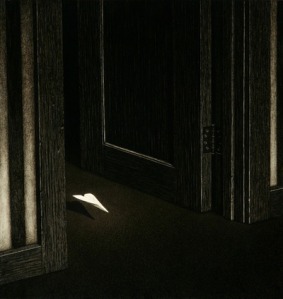 went about his business brushing his hair, folding his clothes and putting on his nightgown, some interloper was stepping ever closer to him even as he failed to notice what she was about. He must have sensed that the inappropriateness of the word might be overlooked in light of the novel suggestion that he, the passive male prey, was pursued and caught by a sexually avid female. It seems quite clear that from the word “foot” which came shod with “naked” and “stalking” had managed to create an image of predator and prey in the context of an illicit assignation, and so it seems that the single word ‘foot’ wound up dictating the course of the entire sonnet.
went about his business brushing his hair, folding his clothes and putting on his nightgown, some interloper was stepping ever closer to him even as he failed to notice what she was about. He must have sensed that the inappropriateness of the word might be overlooked in light of the novel suggestion that he, the passive male prey, was pursued and caught by a sexually avid female. It seems quite clear that from the word “foot” which came shod with “naked” and “stalking” had managed to create an image of predator and prey in the context of an illicit assignation, and so it seems that the single word ‘foot’ wound up dictating the course of the entire sonnet.
Having committed himself to the ‘wild thing’ conceit, he finds himself stalled in the doldrums for a moment. How to reverse the image of male prey and female predator he has already established? He puts down his quill and looks idly around him; his eye falls on a dusty copy of his schoolboy Chaucer. He picks it up, and leafing through it, stops at “The Squire’s Tale.” He happens on the lines….
*That ‘Everything, returning to its kind, 
Gladdens itself’; thus men say, as I guess;
Men love, and naturally, newfangledness,
As do these birds that men in cages feed.
For though you night and day take of them heed,
And fairly strew their cage as soft as silk,
And give them sugar, honey, bread, and milk,
Yet on the instant when the door is up,
They with their feet will spurn their feeding cup,
And to the wood will fly and worms will eat;
So are they all newfangled of their meat,
And love all novelties of their own kind:
Nor nobleness of blood may ever bind.
…and suddenly he feels the riffle of a welcome breeze pushing against his sails. He has been able to move forward by making a connection between “stalking” and “wild” with Chaucer to kindly show him how. He hopes that with the the pretty image of some wild creature picking crumbs from his outstretched hand, he has somehow painted over the previous image of himself being stalked.
Perhaps it is no great sin to filch from Chaucer, even Shakespeare did it, (in Two Gentlemen of Verona) and from this very tale, but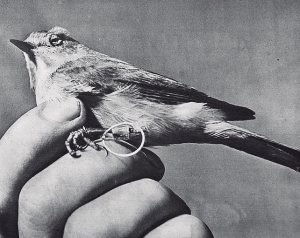 Wyatt is not content simply to borrow. He distills twelve whole lines from Chaucer, thanks to whom he is out of the doldrums, and halfway through his poem. This in turn gives him the inspiration to think about birds gone wild, and meek women who easily divest themselves of their veneer of civilisation and revert to their crude worm-eating in preference to ‘bread at his hand’. Fleeing birds and flighty women – that’s close enough. He hopes that we might have forgotten that the formerly wild woman who stalked him like an animal is now being compared to a caged bird. No matter that Chaucer’s point was that even pampered birds prefer rough freedom to luxurious bondage, and remain ever vigilant for the chance to flee their cages. In Wyatt’s mind this idea is distorted, and the point he chooses to make is that women are ungrateful, and unmindful of the men from whom they have ‘taken bread.’
Wyatt is not content simply to borrow. He distills twelve whole lines from Chaucer, thanks to whom he is out of the doldrums, and halfway through his poem. This in turn gives him the inspiration to think about birds gone wild, and meek women who easily divest themselves of their veneer of civilisation and revert to their crude worm-eating in preference to ‘bread at his hand’. Fleeing birds and flighty women – that’s close enough. He hopes that we might have forgotten that the formerly wild woman who stalked him like an animal is now being compared to a caged bird. No matter that Chaucer’s point was that even pampered birds prefer rough freedom to luxurious bondage, and remain ever vigilant for the chance to flee their cages. In Wyatt’s mind this idea is distorted, and the point he chooses to make is that women are ungrateful, and unmindful of the men from whom they have ‘taken bread.’
Next he lights on ‘newfangledness’ as suitable polysyllabic filler and filches that as well. Now what? Perhaps an exclamation with a 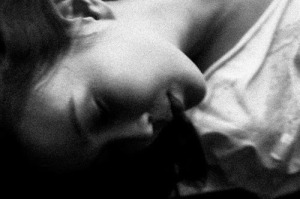 time-muddling indeterminate tense will do the trick: something along the lines of ‘thank goodness!’ Thus we have thanked be fortune if it had been, would it have been or should it have turned out differently, (hath means both had and has) and “Thanked be fortune, it hath been otherwise, Twenty times better;”.
time-muddling indeterminate tense will do the trick: something along the lines of ‘thank goodness!’ Thus we have thanked be fortune if it had been, would it have been or should it have turned out differently, (hath means both had and has) and “Thanked be fortune, it hath been otherwise, Twenty times better;”.
Having already come up with the adjective of ‘naked’ for foot, and a concupiscent note having been struck, he decides to employ the details of one of his assignations. He forges ahead with…
….but once in special,
In thin array after a pleasant guise,
When her loose gown from her shoulders did fall,
And she me caught in her arms long and small;
And therewithal sweetly did me kiss,
And softly said, Dear heart, how like you this?
This works well for a few lines. But once again he grinds to a halt. Where can he go from here? Obviously not to whatever actions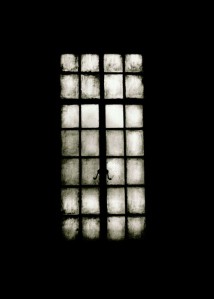 followed the kiss – that would make too much of a good thing – so he hastens to assure us that this incident was not the result of one of those unfortunate dreams of a shameful origin, but a real-life happening, but his demure “it was no dream” tends to give him away. His very asseveration serves to convince me that it was indeed no more than a dream, which he has chosen to enlarge into a boast. But now what? Where is he to go from here? He plugs the gap with two lines of uncertain meaning:
followed the kiss – that would make too much of a good thing – so he hastens to assure us that this incident was not the result of one of those unfortunate dreams of a shameful origin, but a real-life happening, but his demure “it was no dream” tends to give him away. His very asseveration serves to convince me that it was indeed no more than a dream, which he has chosen to enlarge into a boast. But now what? Where is he to go from here? He plugs the gap with two lines of uncertain meaning:
But all is turned through my gentleness, Into a strange fashion of forsaking;
by which he hopes he might persuade us to think of him as resigned and passive and hard-done-by. He entertains the hope that we his readers would not as yet have emerged form the fog of erotic befuddlement cast by lines 9 – 13.
Finally, he has only four lines left to finish, and he begins to wind up his sonnet. Rather unexpectedly he decides in the next two lines, to tell the obvious truth in however confused a manner: He has been cut loose, by the ‘she’ (which used to be’ they‘) who has so unkindly chosen to go her own way. “And I have leave to go of her goodness, And she also to use newfangledness.” But this is an untenable situation, and to be deplored – it is against nature for women to decide….
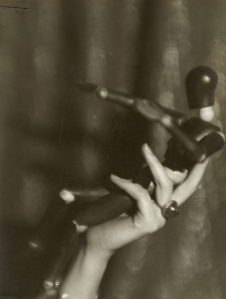 He cannot resist a spurt of sarcasm and rancour and the chance to insert himself and his own agency as being the source of considerable magnanimity. “But since that I so kindely am served, I fain would know what she hath deserved.”
He cannot resist a spurt of sarcasm and rancour and the chance to insert himself and his own agency as being the source of considerable magnanimity. “But since that I so kindely am served, I fain would know what she hath deserved.”
I read it as ironic: ‘since I am so kindly (irony for badly) served, I wonder (actually, I know) what ought to happen to her. Since she was so unkind to me, I hope something unpleasant happened to her’.
I think I see him smirk on the word “kindely”. Perhaps he has heard of the swordsman sent for from France to sever Anne’s neck, which also aptly fits the description of “long and small” which he has earlier applied to a woman’s arms.
Wyatt must have felt some considerable satisfaction at having managed to shepherd his sonnet from its unpromising inception to a passably neat conclusion. He is aware of having nimbly sidestepped a potentially dangerous pitfall presented by the clumping of foot and naked and stocking and stalking, and turned them to his advantage. It was a lucky thing too, happening in a pinch upon Chaucer’s Squire, and using two sly slippages of meaning and confusions of tense and reversals in imagery in order to add some depth of suggestion.
He has managed to subtly smear the reputation of a woman some will identify as Anne Boleyn, whom he had previously lusted after,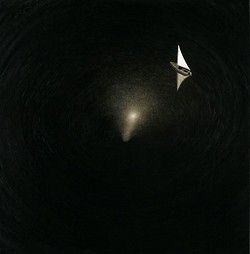 by craftily suggesting that he has been the recipient of her unsolicited sexual favors. He implies that she had been in some manner kept (‘taken bread’) by him. However, he can plausibly claim that the word “they” implies that no particular woman is being referred to. Wyatt is well aware that he owes his life to the fact that he had first taken care to shield himself from his sovereign Henry VIII’s paranoid jealousy, having warned him (prior to Henry’s marriage) that Anne Boleyn would not make a suitable wife.
by craftily suggesting that he has been the recipient of her unsolicited sexual favors. He implies that she had been in some manner kept (‘taken bread’) by him. However, he can plausibly claim that the word “they” implies that no particular woman is being referred to. Wyatt is well aware that he owes his life to the fact that he had first taken care to shield himself from his sovereign Henry VIII’s paranoid jealousy, having warned him (prior to Henry’s marriage) that Anne Boleyn would not make a suitable wife.
It matters not whether the “she” of his sonnet was a woman wild or tame, or wild pretending to be tame, or wild then tame and then reverted to wildness. Was she even human, and not merely a passager who refused to be hooded, but drew down her nictitating membrane when she elected not to see him, and at a time when he would have preferred she had. He has kissed and told, and done a great deal better than if he had openly boasted of sexual conquests in a tavern, but done so nonetheless, with great pretense at refinement. He supposes he has enmeshed his readers in an erotically  charged fantasy, carefully contrived to infect their minds with an image that is lubricious and suggestive, that he evidently wishes them to dwell on. As he laid down his pen, Wyatt may have slyly moistened his lips, contemplating the insidious way in which he had managed to enmesh his readers’ imaginations.
charged fantasy, carefully contrived to infect their minds with an image that is lubricious and suggestive, that he evidently wishes them to dwell on. As he laid down his pen, Wyatt may have slyly moistened his lips, contemplating the insidious way in which he had managed to enmesh his readers’ imaginations.
The absence of love, the salacious note, the whining tone, the lack of sincerity, the arrant denigration implicit in his derisive plural ‘they’ (later slyly modified to ‘she’), the inability to decide if the woman in his poem was the predator or the prey and stick to it, all bespeak shamelessness, falsity and clumsiness. Even the title sounds more like an expression of discontent over loss of privilege than either regret or a lament for lost love. At any rate, he might have thought, he has managed to write a sonnet, and that must count for something. And so, with the initial dejection he felt when he began his poem satisfactorily ameliorated, this non-poet probably put down his quill and blew out his candle for the night.
When probed for its weak spots and with the unnecessary allusion to Chaucer removed, Wyatt’s sonnet might be be made to read thus….
Wyatt somewhat redeemed.
She flees from me that sometime did me seek 
With stockinged foot entering my chamber
I have seen her gentle, tame and meek
Who now is wild, refusing to remember
That in the past she placed herself in danger
To take my hand, though now far does she range.
Heaven be thanked it was not always so
But in more pleasant times she came to me
Clad thinly in her silks in beauteous guise
Slipped her loose gown which from her shoulders fell
Clasped in her slender arms I heard her tell
Me softly whispering, as we did kiss
Dear heart, tell me, do you like this – and this?
It was no dream from which I durstn’t waken
And all that I was helpless to prevent
Being lost is lost and now I am forsaken
As she has left me here and flown away.
Now she is willful and intransigent
And so, since I have been thus cruelly served
I wonder if she found what she deserved.
*Chaucer’s original, which of course is what Wyatt would have read:
That `alle thyng, repeirynge to his kynde, 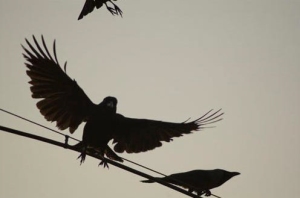
Gladeth hymself;’ thus seyn men, as I gesse.
Men loven of propre kynde newefangelnesse,
As briddes doon that men in cages fede.
For though thou nyght and day take of hem hede,
And strawe hir cage faire and softe as silk,
And yeve hem sugre, hony, breed and milk,
Yet right anon as that his dore is uppe
He with his feet wol spurne adoun his cuppe,
And to the wode he wole and wormes ete;
So newefangel been they of hire mete,
And loven novelries of propre kynde,
No gentillesse of blood ne may hem bynde.

